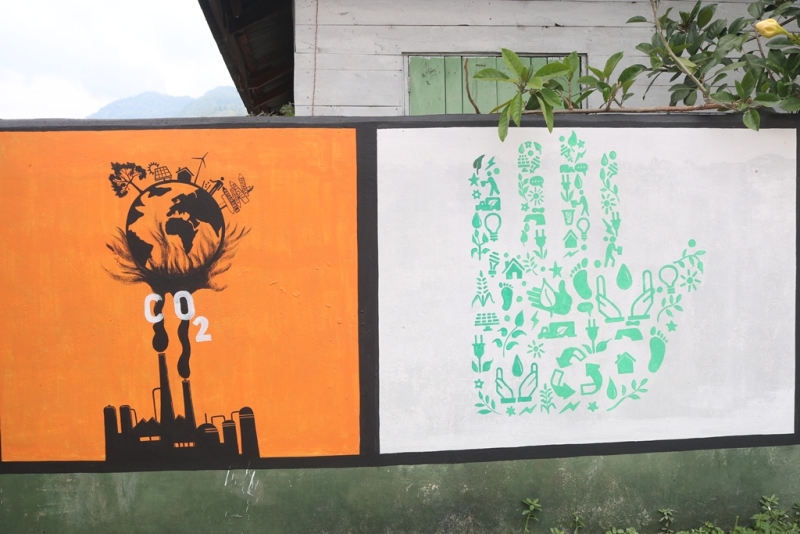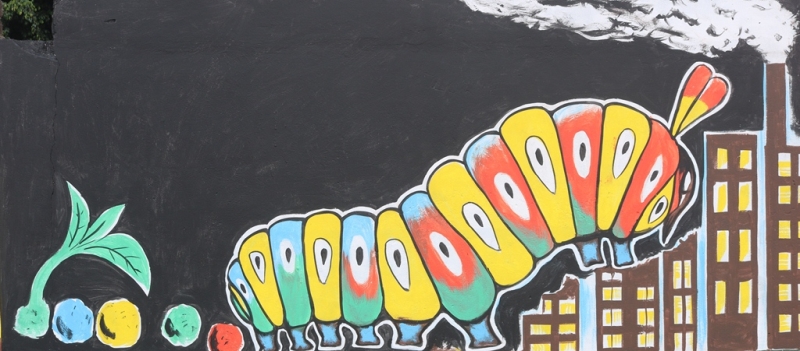Three artists from Chizami painted mural arts at the Chizami welcome gate, local ground, and the administrative office. (Photo Courtesy: Chizami Students' Union)
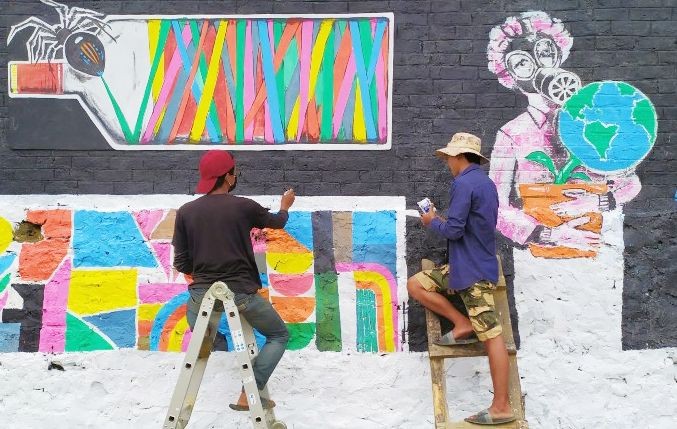
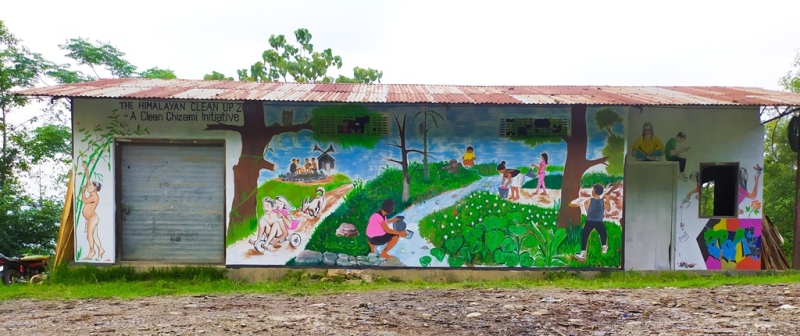
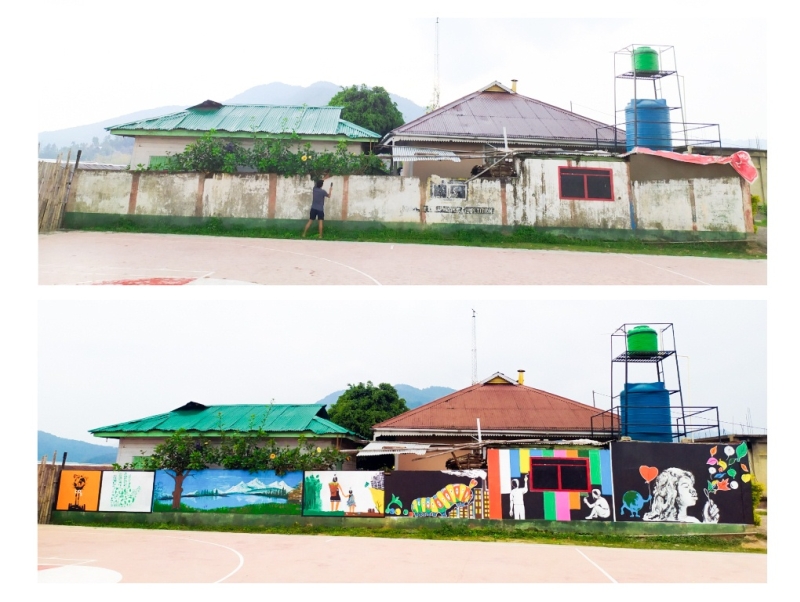
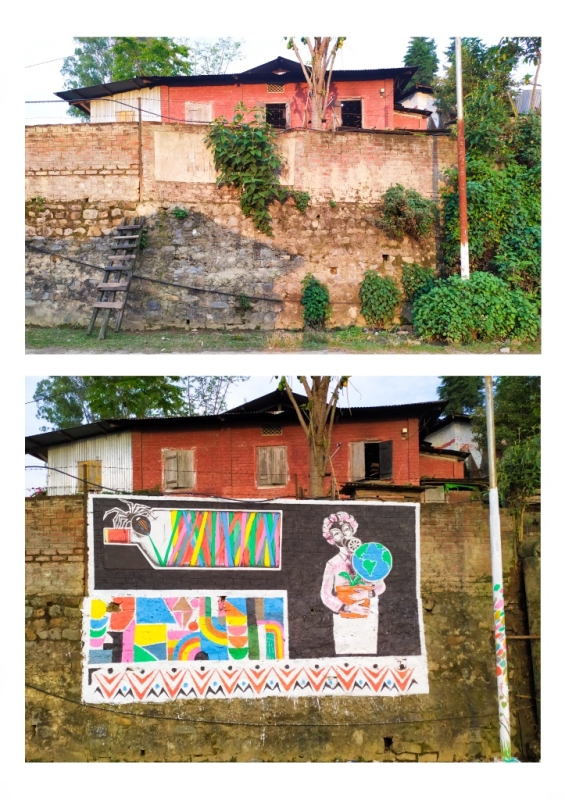
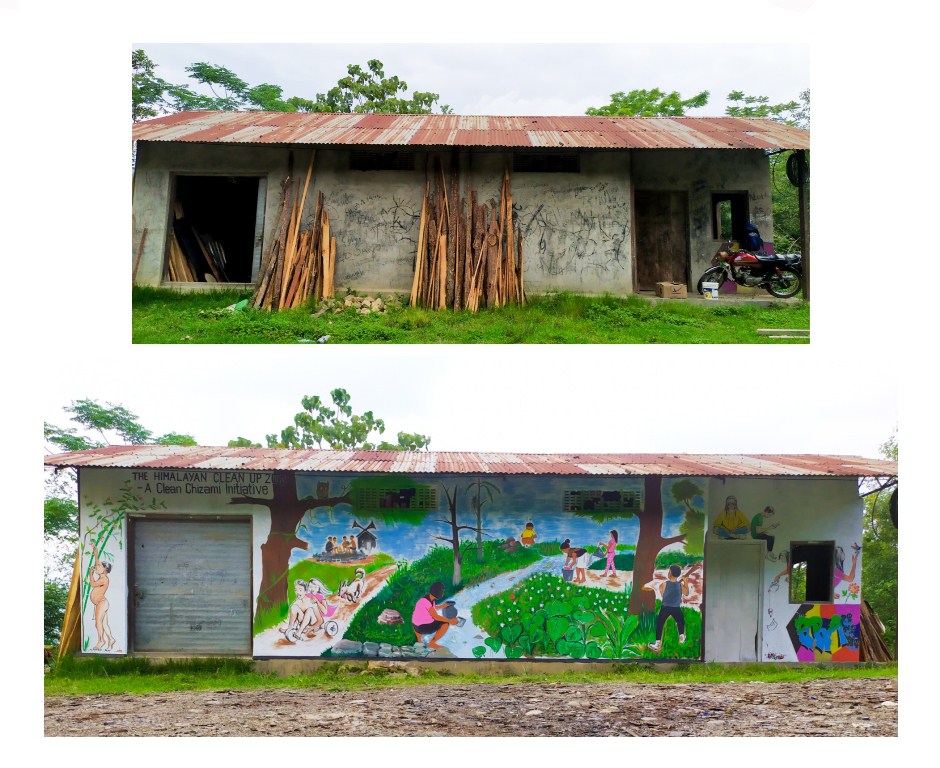
Vishü Rita Krocha
Chizami | July 10
Perched amid the hills of Phek district and located about 80 kilometres from Kohima, Chizami village is a sight to behold with its walls recently adorned by beautiful mural arts that are not only striking with vibrant colours but also carries messages for a clean and green environment.
These mural paintings that also have a traditional touch delicately mirror issues of hygiene and sanitation were artistically done in 4 days by 4 self-taught artists—Kutshezo Naro, Werhitso Kapfo, Wulo Akami and Lhika Thopi, who are all Chizami bred.
In its effort to create awareness among the local community and beyond on the issues of Hygiene, Sanitation and Environment, the Chizami Students’ Union had conceptualized the ‘Clean Chizami Initiative’ and the mural paintings are part of this year’s Himalayan Clean-up Campaign that was initiated in 2018. Every year on May 26, the campaign is conducted across the Himalayan states in India.
“This year, because of the pandemic lockdown, we couldn’t mobilize people for the campaign like the previous years but during this time, many students have also come back. So, we identified some artists in the village with the aim to create positivity and hope amidst the gloom of COVID-19 pandemic that has affected the world over”, Khrolhiweu (Awi) Tsuhah, General Secretary of CSU told The Morung Express.
The initiative, she explained, “represents community solidarity, inclusivity, strong cohesiveness and partnership during this pandemic and towards a clean, safe and healthy environment at the local level.” The artworks are prominent in three strategic locations of the village namely the welcome gate, local ground, and the administrative office.
“Travelers heading towards Phek will see these artworks while most of the youth come to play either basketball or football in the local ground and many people from the neighbouring villages come to the administrative office for work. We also wanted to give hope to those passing through where they would just smile looking at it”, she disclosed.
Acknowledging the North East Network (NEN) and local institutions like Chizami Village Council, Women Society, Youth Society, Chizami Town Chakhesang Students’ Union, Christian Youth Endeavor and Catholic Youth Association which collaborated with the students’ union in the initiative, she expressed that this campaign and award (Chizami had won the Himalayan Cleanup Campaign in 2018) have also been because of community solidarity and strong cohesiveness. “We are proud that we are able to contribute to the community”, she said.
This movement, she highlighted, “was organized in lieu of the Clean Chizami Vision and commitment to National Action Plan on Climate Change and Sustainable Development Goals 2030” while expressing that they plan to continue the campaign engaging young people and community towards a healthy and clean Chizami and beyond.
Talking about one of his artworks, Weritso Kapfo said, “I have depicted the caterpillar using different colours to signify our biodiversity and also to say that the new global society has been disturbing our environment and we have to give space to nature to heal and revive new things.” The artwork further illustrates that “the COVID-19 pandemic has taught us that modern development in its current form will not save us. It is giving us a sign to make way for nature to reclaim its space that we humans have seized and wounded.” “Thanks to their initiative and giving us the opportunity”, he gratefully expressed.
Meanwhile, Wulo Akami’s artwork of a mother and child is reflective of how generations are connected by blood, but disconnected by lifestyle. “The old generation lived in harmony with nature, led simple yet contented lives and ensured the wellbeing of the environment and people but the current generation lives in a world that is driven by capitalism and consumerism, destroying the health of the environment and people”, he highlighted. Akami emphasised that “this is a call to rebuild the broken bridge between the world of the old generation and the current generation; the old world and the current world.”


